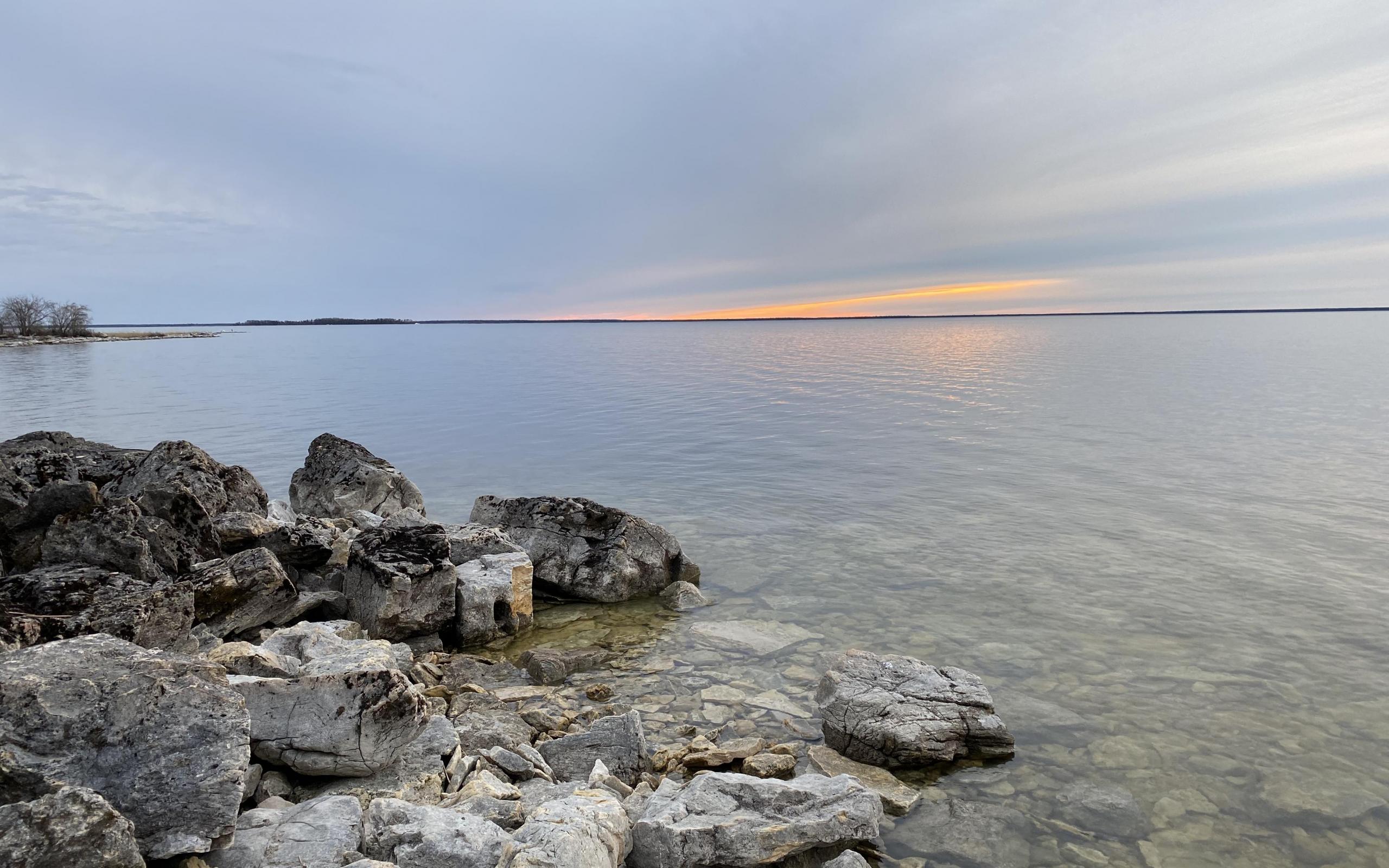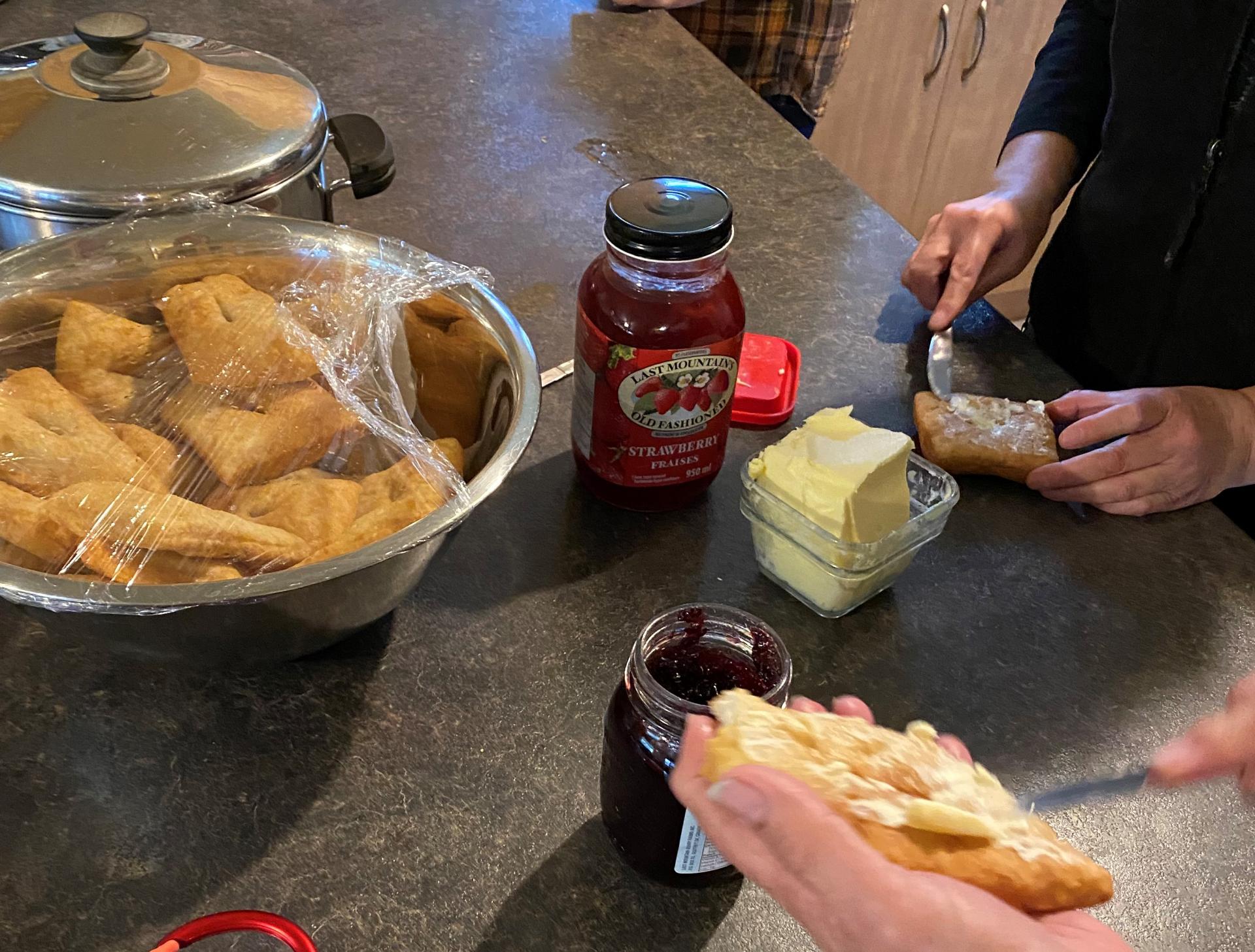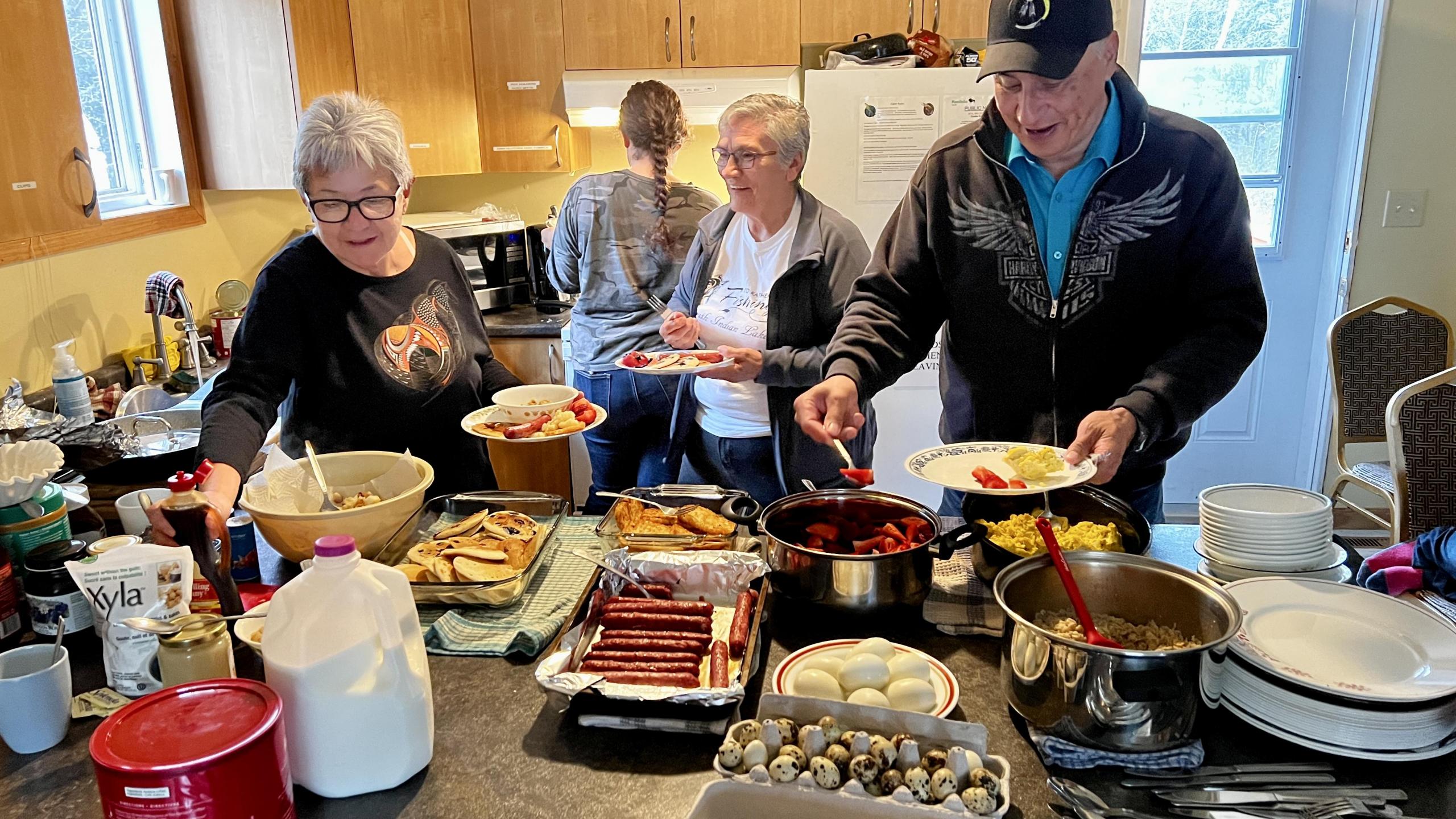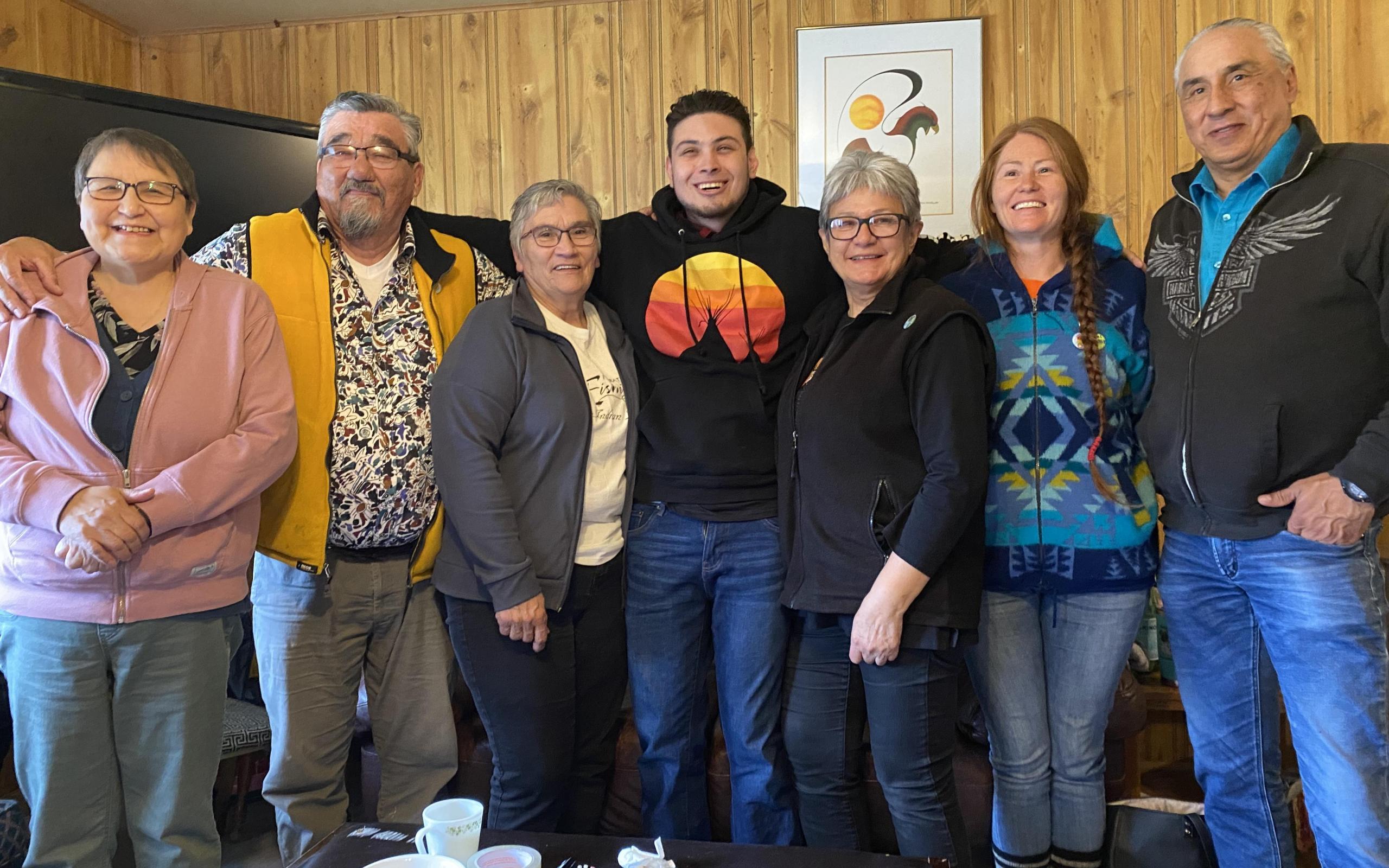A trip to Misipawistik Cree Nation
Centre team member Merryn Maynard spends a weekend with the Northern Manitoba Food, Culture, and Community Collaborative at the first Northern Advisors gathering
Shortly after the Maple Leaf Centre for Food Security launched in 2016, we joined the Northern Manitoba Food, Culture, and Community Collaborative as a funding partner. Since I joined the Centre in 2019, I have been lucky to learn alongside the incredible Collaborative staff, funders, and community members. It’s one thing to work with these folks on a screen and another entirely to spend time face-to-face. I had a chance to do just that at a recent Northern Advisors gathering hosted on Misipawistik Cree Nation (MCN) lands.
After a 5-hour drive North from Winnipeg, we arrived at Cook’s Campground on the shores of the beautiful and clear Cedar Lake. I met the Collaborative’s Northern Advisors for the first time: Carl McCorrister from Peguis First Nation, Sophia Rabliauskas from Poplar River, Hilda Dysart from South Indian Lake, and Becky Cook and Dr. Marlyn Cook from MCN. Each of these Northern Advisors are leaders within their communities and help to guide the Collaborative. All brought youth from their communities to participate in the weekend – Monique, Rhianna, Jacobi, Torian, Mia, Mandy, Tyrell, Aidan and Ashley. This was the first time the Advisors and Collaborative staff would be in the same space and the first gathering since before the pandemic, so there was a feeling of excitement in the air.

Two elders from the Misipawistik community, Brenda and Skip, thoughtfully welcomed our group with a pipe ceremony. They shared the history and importance of the pipe, the knowledge keepers they had learned from, and how the wellness of people, community, and the environment are interconnected. Brenda shared traditional foods like sloppy joes made with ground elk meat, moose stew with bannock, and fried pickerel, all of which had been hunted or harvested by Skip or other community members. Hilda and Sophia spoke about how these foods were nourishing in many ways – for the health and wellbeing of people, for lands and the environment, and for cultural reclamation. Marlyn shared the importance of weaving traditional and Western knowledge together to improve food security, health, wellbeing, and healing. I found myself reflecting on how all these things are connected, and this theme of interconnection kept arising in different ways throughout the weekend.

With prohibitively high food prices in many Northern communities, most fresh food must be transported long distances and store-bought foods are extremely expensive. I heard from community members that increasing food sovereignty – the capacity and agency to acquire and manage one’s food sources – is a pathway to reducing food insecurity in Northern communities. The Northern Advisors shared the importance of having access to the land and resources to hunt, harvest, gather, and cultivate in their communities. Becky talked about monitoring water quality and tracking moose to better protect the lands, waters, and sources of food for the Misipawistik community in the face of climate change. She shared the MCN Lands Department’s programming to teach hunting skills to youth and showed us the processing facility that will help process and share moose meat with community members to reduce reliance on the local store. Carl, who had just returned to Peguis First Nation after being evacuated due to severe flooding, shared how the Peguis community garden allows families to plant, grow and harvest throughout the summer months and provides a source of fresh produce. I learned that these efforts not only strengthen food sovereignty, they also support a resurgence in cultural knowledge and skills, build local infrastructure, strengthen connection to the land, and improve health and wellbeing.

There were many conversations about the Collaborative’s goals and how to work towards them. I heard about the importance of values, engaging community members, and involving youth. Mervin Travers, the newest Northern Advisor to join the Collaborative, suggested that ‘unity’ should be a key part of the Collaborative’s vision to create healthier, stronger communities in Northern Manitoba. I resonated with these conversations and felt inspired by the words of the youth, who shared how this work impacts them. The weekend was capped off with a trading session, in which we traded with each other for goods and items that had been brought from our respective homes. Carl described the important history of trading in Manitoba and that we were honouring that history and building relationships with one another by participating in them today.
I also heard about some of the challenges faced by the people of northern Manitoba. Poor health, lack of access to clean drinking water, poverty, and environmental degradation are challenges that intersect with one another and have been driven by colonization. While community members know the changes that are needed and are tackling these problems, it’s clear that there is to much more work to be done. Through what I’ve learned, I believe we have a collective responsibility to learn the truth and support the sovereignty of Indigenous communities and peoples. I also believe this requires us to make stronger commitments to reconciliation in the work we do. The steps I’m taking include supporting the work of the Collaborative and Northern Manitoba communities, uplifting the voices of community members, and learning how to help in a good way. I am deeply grateful for the opportunity to get to learn from and work with them to make a difference.

June 20, 2022